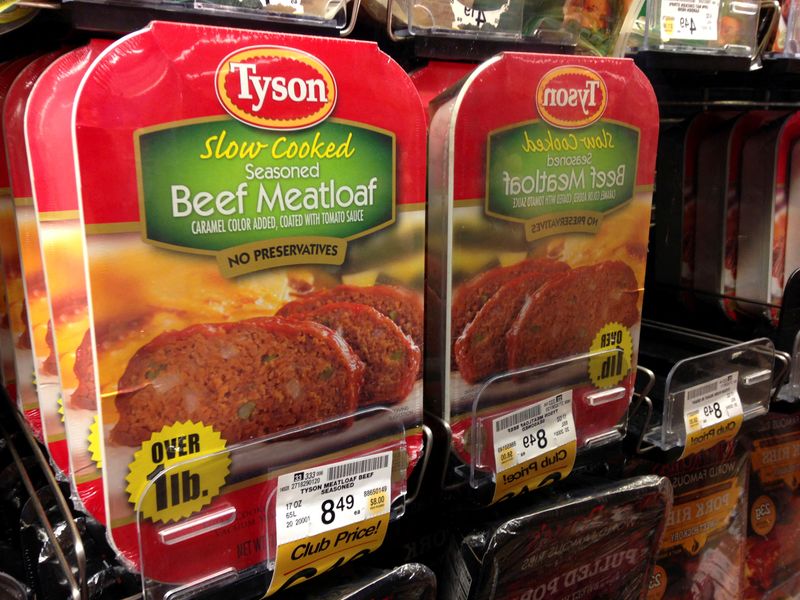By Tom Polansek and Ananya Mariam Rajesh
-Tyson Foods Inc shares climbed more than 11% to an all-time high on Monday after the company reported that first-quarter profits nearly doubled due to soaring U.S. meat prices.
Shares rebounded from a one-month low on Friday to reach a record $99.20, up 14% from the start of the year.
The surge reflects strong demand and high prices for Tyson’s beef, pork and chicken, as U.S. labor shortages have limited production.
“Customer demand continues to outpace our ability to supply product,” Chief Executive Donnie King said.
Increased prices and profits threaten to amplify Washington’s scrutiny of the U.S. meatpacking industry, as the Biden administration has criticized a lack of competition in the sector.
Tyson and three other industry behemoths slaughter about 85% of grain-fattened cattle carved into steaks for consumers.
The average price for Tyson’s beef surged 31.7% in the quarter ended on Jan. 1, while the unit’s operating margins jumped to 19.1% from 13.2% a year ago. Average prices for all of Tyson’s products climbed by 19.6%.
Overall sales for beef soared about 25% to $5 billion, helping Arkansas-based Tyson’s sales rise 24% to $12.93 billion in the quarter. Analysts, on average, were expecting revenue of $12.18 billion, according to IBES data from Refinitiv.
Net income attributable rose to $1.12 billion and excluding items, Tyson earned $2.87 per share, beating estimates of $1.95 per share.
Tyson said it raised meat prices to offset higher costs for labor, transportation and grains used for animal feed. Its cost of goods rose by 18% in the quarter, and King told reporters he expects grain prices will continue to rise.
To respond, Tyson restructured its chicken pricing strategy to make it more flexible and has asked customers to pay for freight rates that jumped 32%, King said.
“They’re dealing with a very inflationary environment across kind of all their businesses,” said Adam Samuelson, lead agribusiness analyst at Goldman Sachs.
(Reporting by Ananya Mariam Rajesh in Bengaluru and Tom Polansek in Chicago; Editing by Shinjini Ganguli and Nick Zieminski)
